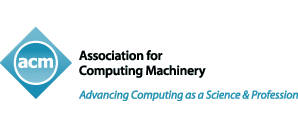| Recognition For NoSQL Pioneers |
| Written by Sue Gee | |||
| Monday, 05 July 2021 | |||
|
The three creators of Berkeley DB, an early exemplar of the NoSQL movement, Margo Seltzer, now at the University of British Columbia; Mike Olson, formerly of Cloudera; and Keith Bostic of MongoDB have been awarded the 2020 ACM Software System Award which carries a prize of $35,000, funded by IBM.
The Association for Computer Machinery, the world's foremost professional membership organization for computing, administers a large number of awards with the Turing Award being the best known and most lucrative. The System Software Award is one of the ACM's technical awards in which recipients are selected by their peers for making significant contributions that enable the computing field to solve real-world challenges. It is awarded to an institution or individual(s) recognized for developing a software system that has had a lasting influence on computing. The citation for each of the three recipients of the 2020 ACM Software System Award reads: For Berkeley DB, which was an early exemplar of the NoSQL movement and pioneered the "dual-license" approach to software licensing. According to the ACM: Since 1991, Berkeley DB has been a pervasive force underlying the modern internet: it is a part of nearly every POSIX or POSIX-like system, as well as the GNU standard C library (glibc) and many higher-level scripting languages. Berkeley DB was the transactional key/value store for a range of first- and second-generation internet services, including account management, mail and identity servers, online trading platforms and many other software-as-a-service platforms. Berkeley DB, created by Seltzer, Olson and Bostic at UC Berkeley, was originally distributed as part of the University of California’s Fourth Berkeley Software Distribution. Intended to be used as a teaching tool it was an open-source package which let students "see under the hood". As the first production quality, commercial key/value store, BerkeleyDB helped launched the NoSQL movement and as the engine behind Amazon’s Dynamo and the University of Michigan’s SLAPD server, it helped move non-relational databases into the public eye. Sleepycat Software, founded by Seltzer and Bostic in 1996 to continue development of Berkeley DB and provide commercial support, pioneered the “dual-license” model of software licensing whereby use and redistribution in Open Source applications was always free, and companies could choose a commercial license for support or to distribute Berkeley DB as part of proprietary packages. The open source Berkeley DB release includes all the features of the complete commercial version, and developers building prototypes with open source releases suffer no delay when transitioning to a proprietary product that embeds Berkeley DB. According to the ACM: This model pointed the way for a number of other open source companies, and this innovation has been widely adopted in open source communities.
More InformationRelated ArticlesAuthors of the Dragon Book Win 2020 Turing Award Margaret Martonosi Receives Computer Architecture Award Levesque and Vardi Receive Newell Award Why Programmers Don't Join The ACM To be informed about new articles on I Programmer, sign up for our weekly newsletter, subscribe to the RSS feed and follow us on Twitter, Facebook or Linkedin.
Comments
or email your comment to: comments@i-programmer.info |
|||
| Last Updated ( Monday, 05 July 2021 ) |



